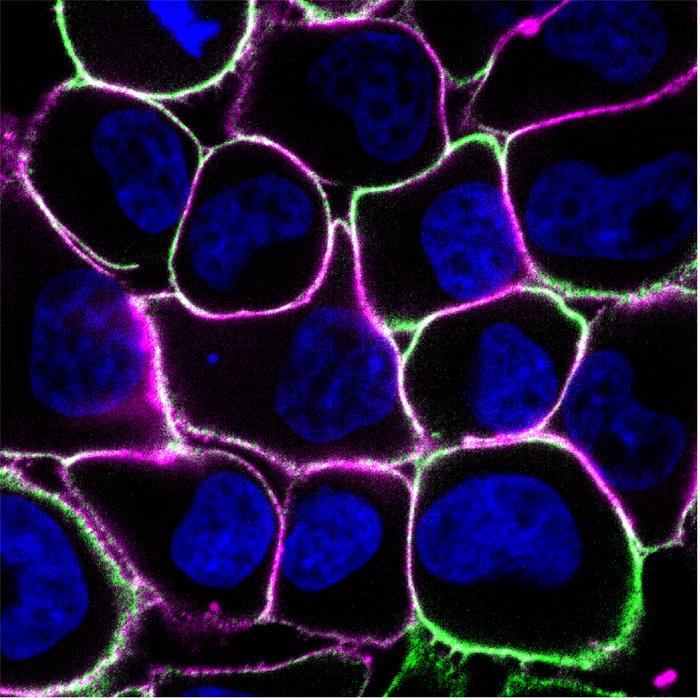Cancer cells have long been regarded as ruthless competitors in the race for nutrients and resources within their environment. However, recent groundbreaking research from New York University has unveiled a hidden aspect of tumor biology: the cooperative behavior exhibited by cancer cells under nutrient-scarce conditions. This study sheds light on how these cells band together to survive, presenting a remarkable shift in understanding that may transform therapeutic strategies against cancer.
In the new study published in the esteemed journal Nature, a team led by Professor Carlos Carmona-Fontaine discovered that tumor cells—exemplified by various human cancers such as breast, skin, and lung cancer—engage in cooperative interactions rather than purely competitive ones when faced with amino acid scarcity. This revelation challenges the conventional view that cell competition is the sole determinant of tumor progression, suggesting that cooperation, too, plays a critical role. The researchers meticulously tracked the growth and behavior of diverse tumor cell populations, revealing a complex network of interactions that might offer avenues for more directed cancer therapies.
The intricate study utilized advanced technological tools, including robotic microscopy and bespoke image analysis software, enabling the researchers to examine millions of cells across an expansive array of nutrient conditions. This innovative approach allowed them to quantify cellular behaviors in both sparsely populated and crowded environments in real time. As they probed deeper into the mechanisms at play, the team noted a striking trend: when deprived of essential amino acids, tumor cells were compelled to collaborate in order to scavenge and share limited resources.
The dynamics observed in this study mirrored patterns seen in ecological systems, where organisms often cooperate in harsh conditions to ensure survival. Just as penguins cluster to maintain warmth in frigid climates, or yeast establish symbiotic relationships when under nutritional stress, tumor cells exhibit similar communal behaviors in their quest for survival. This fascinating parallel emphasizes that survival instincts transcend simple competition and reveal a more nuanced understanding of intercellular interactions within tumors.
An especially noteworthy aspect of the research was related to oligopeptides, which serve as vital nutrient sources for cancer cells. These small chains of amino acids are secreted into the extracellular environment, where they become available for cellular uptake. Remarkably, the study demonstrated that rather than simply consuming these peptides for their internal growth, cancer cells expel an enzyme known as CNDP2 to break down oligopeptides into free amino acids, thus cultivating a shared nutrient pool. This cooperative mechanism transforms what was once viewed as an individual struggle for sustenance into a collective benefit that propels tumor growth.
Through meticulous experimentation, the research team pinpointed CNDP2 as a major player in this cooperative nutrient-scavenging process. By administering various drugs, they observed that inhibiting CNDP2 halted tumor cells’
Tags: advanced microscopy techniques in cancer researchcellular behavior under nutrient limitationscooperative behavior in cancer cellsimpact of amino acid scarcity on cancerimplications of cooperation on tumor progressioninnovative research in cancer biologyNew York University cancer studynutrient scavenging mechanisms in tumorstherapeutic strategies for cancer treatmenttransformative approaches to cancer therapytumor cell interactions and cooperationunderstanding cancer cell competition dynamics





